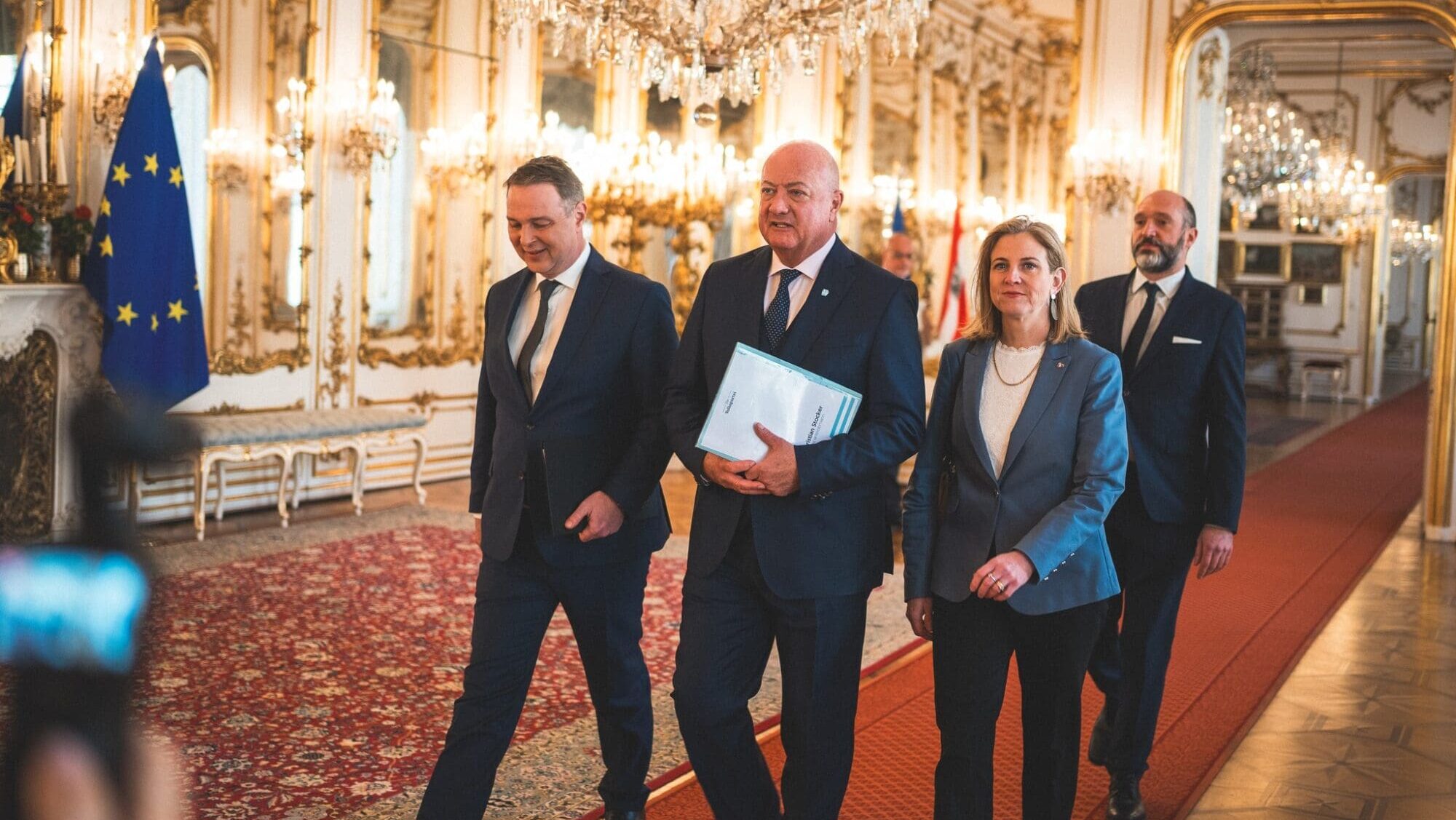
Andreas Babler (SPÖ), Christian Stocker (ÖVP), and Beate Meinl-Reisinger (NEOS)
Photo: Andreas Babler on Facebook, 24 February 2025
The formation of a new Austrian centrist government may be announced this week, as the centre-right People’s Party (ÖVP), the Social Democrats (SPÖ), and the liberal NEOS party edge closer to a coalition agreement.
On Saturday, February 22nd, ÖVP leader Christian Stocker declared
I am very confident that in the common ground that we have found, we will manage to finalise a coalition government agreement.
Following in the footsteps of Germany, where a grand coalition of the centre-right and the centre-left is expected to be formed after the elections, Austria, too, will be governed again by the two main establishment parties, despite voters’ desire for change.
Instead of a “real political U-turn,” the country is being threatened with “more debt, rising inflation, and the continuation of illegal mass immigration,” Herbert Kickl, leader of the right-wing Freedom Party (FPÖ) said on the weekend, reacting to the talks between the three centrist parties.
The eurosceptic-sovereignist FPÖ won the national elections back in September on an anti-immigration platform, but was sidelined by the other parties. A bid to form a three-way coalition failed, allowing the FPÖ to negotiate a two-party coalition with the ÖVP but those talks collapsed as well.
Almost 150 days have passed since the election, which means Austria will set a new record for the amount of time it takes to form a government.
The return of the Social Democrats to power, who last governed together with the People’s Party between 2007 and 2017, will likely signal a return to high taxation, radical climate policies, and pro-migration steps—the exact opposite of what voters wanted.
The previous attempt at forming a government between the three parties had failed because of the SPÖ’s demands to introduce new taxes on wealth and inheritance.
The demand for change in Austria is even more evident than before, as opinion polls suggest that the FPÖ would get an ever higher share of the votes: 34% compared to 28% at the elections in September.
Wahlumfrage OGM/Servus TV 17.-18.2. : FP trotz/durch Verhandlungsabbruch gefestigt. VP überwindet Tiefpunkt, kleine Zuwächse für SP und NEOS. Mehr Info: https://t.co/zuFBHejvt4 1/2 pic.twitter.com/7u72rGgpYI
— OGM (@OGM_at) February 20, 2025
According to media reports, ÖVP politicians will head the chancellery, the interior, defence, economy, and agriculture ministries, SPÖ will be in charge of finance, justice, infrastructure, and social affairs, and NEOS will take the foreign and education ministries.
Herbert Kickl previously said that neither the ÖVP nor the SPÖ should be allowed to control the interior or the finance ministry because both of them are responsible for indebting Austria and for the “migration disaster” of the past decade.
